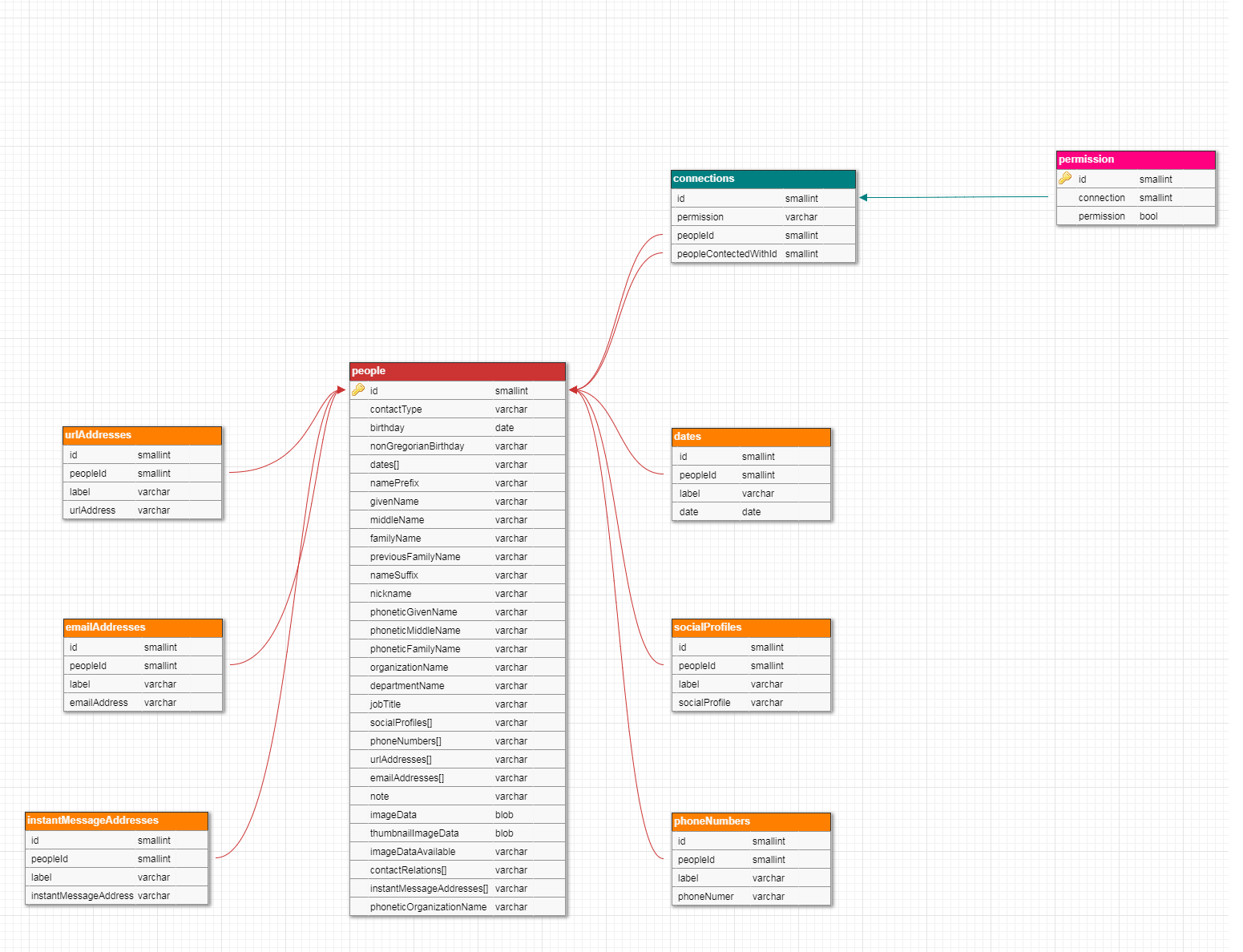Scenario
I would now like to implement a permission system so that a user is able to restrict access on his contact properties to his connections, e.g.:
A wants to allow B to access his name, birthday and work mail;
all other properties are private to B; and
A wants to allow C to access his name, phone number and private mail, etc.
Current considerations
I have a database scheme as shown in the picture below for an app that manages contact information for users:
The red table people contains basic information of the user, the yellow tables are arrays so that every user can have multiple email addresses, phone numbers etc. You may expose your contact data to other people by connecting to them as managed by the connection table.
The question
So my question now is, how can I design an efficient permission system that achieves the described goal?

